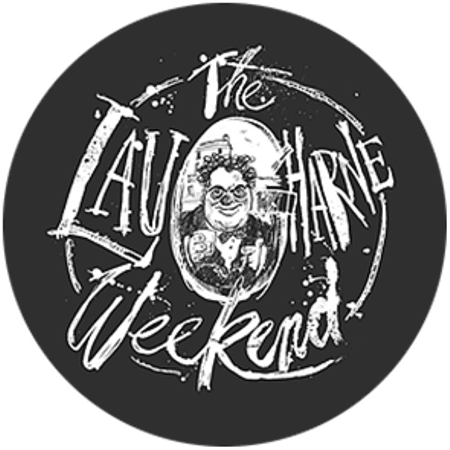The Fatal Tree…Written by Jake Arnott(The author of ‘The Long Firm.’)
The Laugharne Festival, known as the ‘Laugharne Weekend’ takes place once a year at Laugharne, Carmarthenshire, the cute little village where Dylan Thomas resided. The Festival is not to celebrate Thomas but to create a literary atmosphere of literature and culture, of music and drama and of fun and laughter, the type of celebration Dylan Thomas, himself, would have liked to attend.
I signed on to a Writer’s Workshop overseen by Jake Arnott, who had travelled over from London to guide, assistand aspire writers.
Jake Arnott has just released his new book ‘The Fatal Tree’ which has already been acclaimed a Classic, as ita requires closestudy of the underworld ‘slang’ known as ‘flash’ asused in the 1700 era, which is way back in historical slang language and the streets of crime that Arnott could depict, and this is what makes the book unique in form.
First published in Great Britain in 2017 by Sceptre
An imprint of Hodder & Stoughton
Hardback ISBN 9781473637740
EBOOK ISBN 9781473637771
An Interview with Jake Arnott.
Irene Was it great fun delving into the lives of ‘spruce-prigs,’ ‘twangs,’ and ‘buttock brokers?’
Jake There was a certain pleasure in immersing myself in the underworld of 1720s London, it was an age of pleasure after all. But it was a dangerous time to live as well, so there was a poignancy in how I reflected on the lives of my characters, particularly with the central character Bess. She is determined to have a good time despite the odds but she does want more than that too. There’s fun to be had with the creativity of the language and the gallows-humour but it comes from a precarious existence. It’s a dark comedy.
Irene Through your research the parallel between poverty and crime is seen in abundance in ‘The Fatal Tree,’ where the ‘underworld’ impinges on the ‘legitimate’ in society, as it trends today. Did your research satisfy you in providing evidence for this correlation?
JakeWhat fascinated me was that writers of that time made that very correlation. In John Gay’s Beggar’s Opera there are direct references to how the rich bankers and stock-jobbers have got away with the fraud of the South Sea Bubble whilst ordinary people get hanged for stealing a shilling. I think this sense of injustice was behind much of the ironic, satirical style of writers of that period. You certainly see it in Swift, for example. So I didn’t think I was imposing modern values on the period but rather capturing the mood of the time
Irene. Would you agree that the crimes of the rich and those of the poor are still mirroring eighteen century behaviour?
JakeThere are obvious parallels, not least between the South Sea Bubble and the financial crash in 2007 and its consequences, ‘respectable’ society still tend to blame the poor for their own poverty. The gap between rich and poor in the 18th century was more extreme but we’re heading that way and that’s a dangerous prospect.
Irene The ‘flash’ language slang of the underworld will be new to most readers as it is a different form of language to us, and we will need to reflect a lot on the translation in the glossary. The end result of your narrative has produced something so unique in style and language that ‘The Fatal Tree’ has already been termed as a Classical Novelto study. Words like ’glim,’ ‘widd,’ ‘patter,’ ‘darkmans,’ ‘gape-seed,’ ‘sky parlour,’ or‘gentry-mort,’ and ‘trull,’ spring to mind. How long did it take you, (research time included), to write the whole novel which draws in this unusual slang language?
JakeI wrote the first draft in a year, which is quite fast for me, but I was writing and researching at the same time. The story and its structure came very quickly. It then took me about a year of redrafts and editing, largely because there was so much material that I had to shape. The early 1720s is a particularly rich moment in criminal history with some really excellent contemporary sources to draw from. With the flash slang I found a dictionary from 1725 so I was able to re create the street patois of the time but it took some time to make it flow, particularly in the dialogue.
Irene What inspired you to reach back in history and write an underworld narrative?
Jake I suppose I’m always more interested in the unofficial rather than the official history, I want to give a voice to the dispossessed. I don’t see the ‘underworld’ as being a separate place but an integral part of any society and maybe the best viewpoint of it. You don’t get a real sense of the capital from the London Eye, you have to get down into its side streets and back alleys to really understand it.
Irene’s comments.
The story of Elizabeth Lyon as ‘ Edgworth Bess’, her lover, accomplice and betrayer Jack Sheppard, together with Wild and Billy were based on real people. That of the stink of the heart of London, the gin, prostitution, the ‘posture-Molls’ and ‘lully- prigs’ becomes a scene where the rich get off lightly with crime and where the poor receive no mercy, for this was a period of multi-hangings for criminals.
The story tells the tale of ruin and repentance of gentry, of authors and of course hardened criminals. It’s not a fast-paced page turner, for it requires a study of the verse used, but the story is a good one for anyone interested in historical literature, and it becomes an insight into the nature of days gone by.
Irene to Jake I found your workshop in Laugharne both informative and inspiring and I enjoyed meeting with you and others in the group. I look forward to attending any future workshops you will run at the Laugharne Festival for writers. Thank you for your willingness to take part in this interview and we at West Wales Chronicle, and myself, wish you well with your future book successes.
Foreword to ‘The Fatal Tree.’
He fancied himself the wild rogue, to be ruled by no one, and I the haughty jade who needed no man. In truth we both belonged to the prig-napper. We all did in the end.
Newgate Goal, 1726. An anonymous writer sets down the words of Edgworth Bess as she confides the adventures and misfortunes that led her all too soon to the judgement of London:
Cruelly deceived, Bess is cast out onto the streets of the wicked city- and by nightfall her ruin is already certain. What matters now is her survival of it.
In that dangerous underworld known in thieves’ cant as Romeville, she will learn new tricks and trades. And all begins with her fateful meeting, that very first night, with the corrupt thief-taker general, Jonathan Wild.
But it is the infamous goal-breaker, Jack Sheppard, who will lay Romeville at her feet…
Drawing on the true story that mesmerised eighteenth-century society, the acclaimed author of The Long Firm delivers a tour de force: a riveting, artful tale of crime and rough justice, love and betrayal. Rich in the street slang of the era, it vividly conjures up a murky world of illicit dens and molly-houses; a world where life was lived on the edge, in the shadow of that fatal tree- the gallows
Further reading by Jake Arnott
The Long Firm (now a BBC TV series)
He Kills Coppers (Series by Channel 4)
Help keep news FREE for our readers
Supporting your local community newspaper/online news outlet is crucial now more than ever. If you believe in independent journalism, then consider making a valuable contribution by making a one-time or monthly donation. We operate in rural areas where providing unbiased news can be challenging. Read More About Supporting The West Wales Chronicle


























